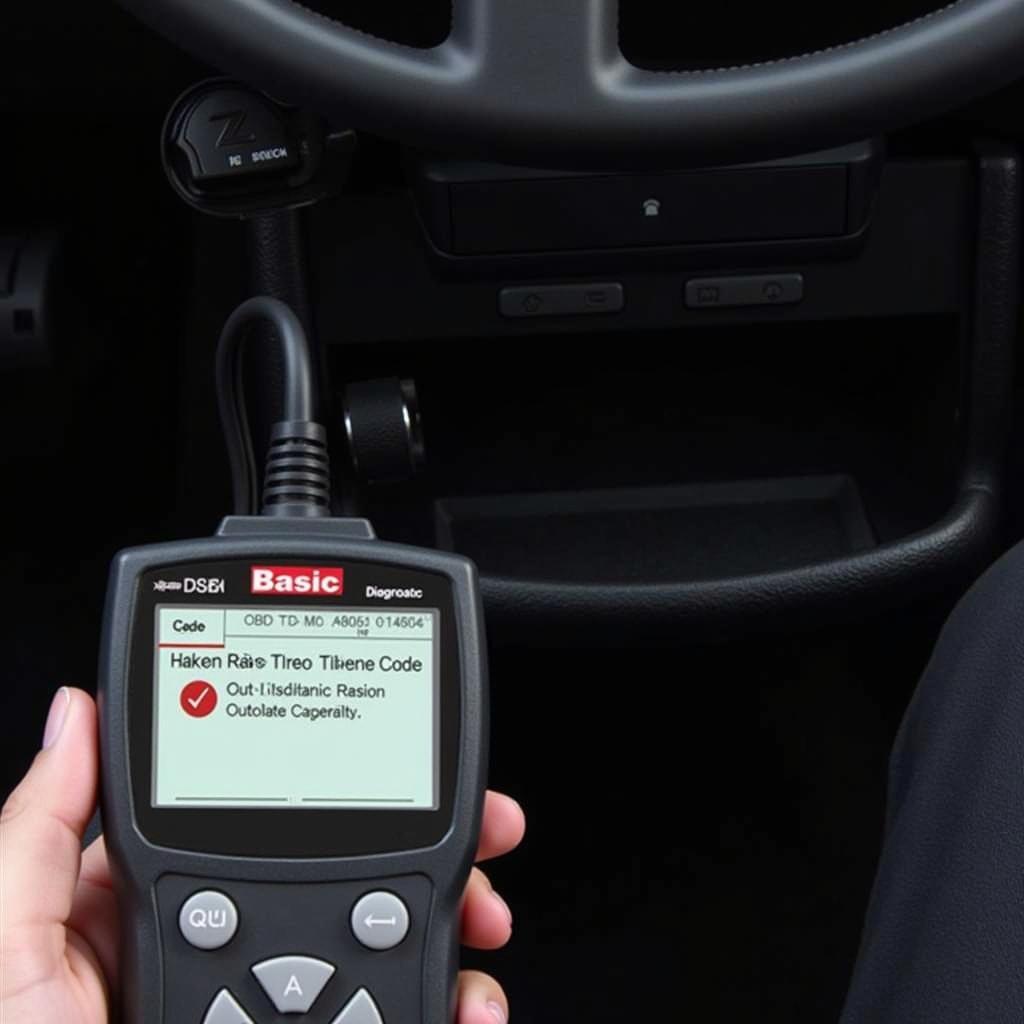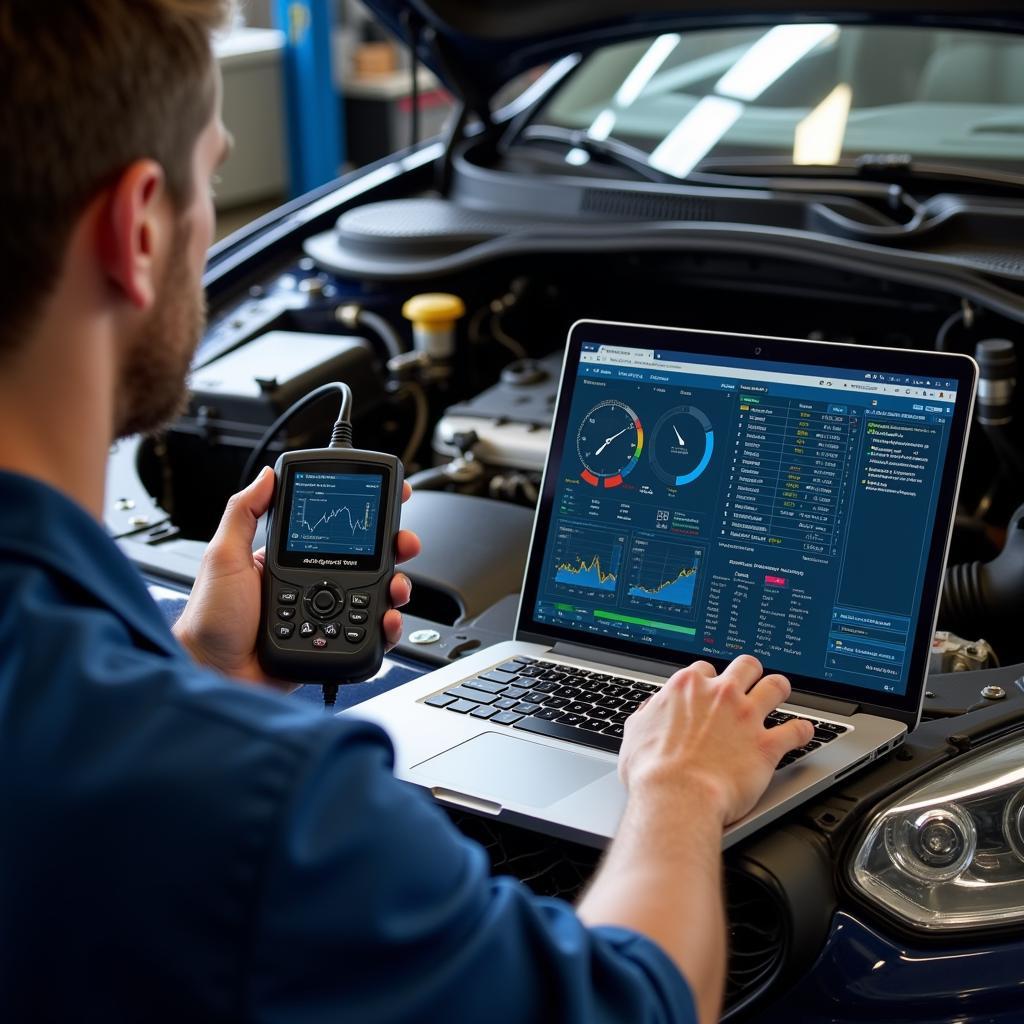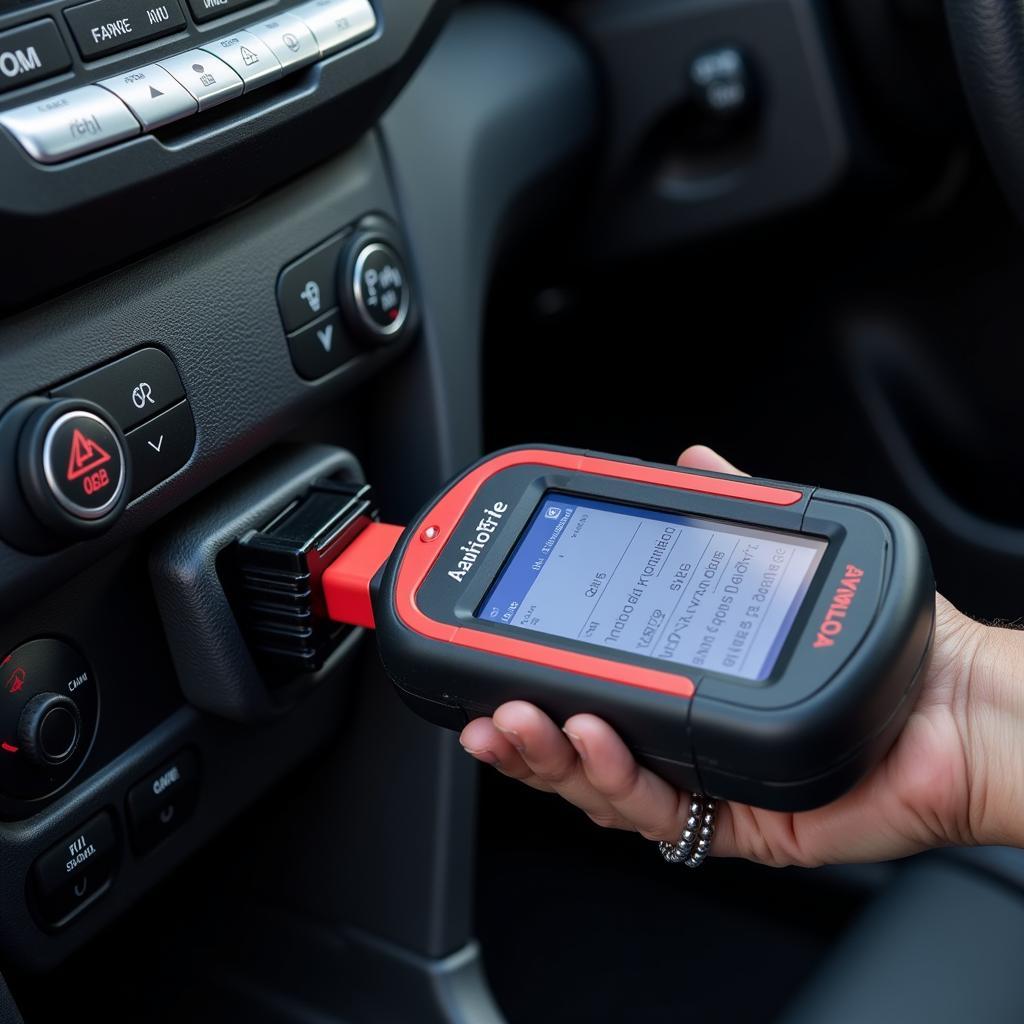The world of car repair has come a long way from wrenches and intuition. Today, car mechanics rely heavily on technology, with OBD diagnostic scanners being a cornerstone of any modern garage. But with countless options flooding the market, finding the right car mechanics OBD diagnostic scanner for your needs can feel like navigating a maze. That’s where this comprehensive review comes in. We’ll break down everything you need to know, from understanding the basics to exploring advanced features, ensuring you’re equipped to make an informed decision.
Understanding OBD Diagnostic Scanners: A Mechanic’s Best Friend
Before diving into specific products, it’s crucial to grasp the fundamentals of OBD (On-Board Diagnostics) diagnostic scanners. These devices act as a window into your car’s computer system, retrieving and deciphering trouble codes, also known as Diagnostic Trouble Codes (DTCs). Imagine them as translators, converting complex data into understandable information about your car’s health.
What to Look for in a Car Mechanics OBD Diagnostic Scanner
Choosing the right scanner boils down to your specific needs and budget. Here are key factors to consider:
- Vehicle Coverage: Ensure the scanner supports the make, model, and year range of vehicles you work on regularly.
- Code Reading and Clearing: This is the basic function, allowing you to read and clear DTCs, essential for identifying and addressing issues.
- Live Data Streaming: View real-time sensor data, such as engine RPM, coolant temperature, and oxygen sensor readings, for dynamic diagnostics.
- Bi-Directional Controls: Advanced scanners offer bi-directional control, enabling you to activate components like fuel injectors or ABS solenoids for testing.
- Special Functions: Some scanners provide specialized functions tailored to specific car brands, such as ABS bleeding, airbag reset, or transmission relearn procedures.
- User Interface and Software: An intuitive user interface with clear menus and easy navigation enhances the user experience. Regular software updates are vital for staying compatible with newer vehicle models.
- Durability and Build Quality: Opt for a scanner built to withstand the rigors of a garage environment.
- Price and Warranty: Set a budget and explore scanners offering the best value for your money. A solid warranty provides peace of mind.
Types of Car Mechanic OBD Diagnostic Scanners
Car mechanic OBD diagnostic scanners come in various forms, each catering to different levels of expertise and needs:
1. Basic Code Readers
These entry-level scanners are budget-friendly and focus on reading and clearing DTCs. They’re suitable for DIY enthusiasts and small workshops handling basic repairs.
 Basic OBD Code Reader
Basic OBD Code Reader
2. Professional-Grade Scan Tools
Professional-grade scanners are comprehensive tools designed for experienced mechanics and larger repair shops. They offer advanced features like live data streaming, bi-directional control, and special functions, providing in-depth diagnostic capabilities.
 Professional-Grade OBD Scanner
Professional-Grade OBD Scanner
3. Manufacturer-Specific Scan Tools
These scanners are tailored for specific car brands, providing in-depth access to vehicle systems and specialized functions. They’re ideal for workshops specializing in particular car manufacturers.
 Manufacturer-Specific OBD Scanner
Manufacturer-Specific OBD Scanner
“Investing in the right OBD scanner is crucial for any mechanic,” says John Miller, a veteran automotive technician with over 20 years of experience. “It’s not just about reading codes; it’s about having the tools to understand the data, diagnose issues accurately, and provide effective solutions for your customers.”
Top Car Mechanic OBD Diagnostic Scanners: A Comparative Glance
To simplify your search, we’ve compiled a table highlighting some of the top contenders in the market:
| Scanner Model | Type | Vehicle Coverage | Special Functions | Price Range |
|---|---|---|---|---|
| Autel MaxiCOM MK808 | Professional-Grade | Wide | ABS Bleeding, SAS Calibration, EPB Reset | $$$ |
| Launch CRP129X | Professional-Grade | Wide | Oil Reset, SAS Reset, TPMS Reset | $$ |
| BlueDriver Pro | Basic Code Reader + Smartphone Integration | Wide | Limited | $ |
| Foxwell NT510 | Manufacturer-Specific (Various Models) | Specific Makes | Advanced Functions for Specific Makes | $$-$$$ |
| Thinkcar Pro | Professional-Grade | Wide | Comprehensive Functions, Remote Diagnosis | $$$$ |
Note: Prices are approximate and can vary based on retailer and promotions.
Beyond the Basics: Maximizing Your OBD Scanner’s Potential
Owning a powerful scanner is just the first step. To truly leverage its capabilities, consider these tips:
- Continuous Learning: Stay updated on the latest automotive technologies, diagnostic procedures, and software updates for your scanner.
- Online Resources: Utilize online forums, technical databases, and manufacturer websites for troubleshooting guidance and information on specific DTCs.
- Hands-On Practice: Regularly use your scanner on various vehicles to hone your diagnostic skills and familiarize yourself with different systems.
- Invest in Training: Consider specialized training courses to deepen your understanding of OBD diagnostics and advanced scanner features.
Conclusion
Choosing the right car mechanics OBD diagnostic scanner is paramount for efficient and accurate vehicle repair. By understanding your needs, researching different options, and investing in your knowledge, you can equip yourself with a tool that elevates your diagnostic prowess and streamlines your workflow.
FAQs about Car Mechanic OBD Diagnostic Scanners
1. Can I use any OBD scanner on any car?
Not necessarily. While most modern cars use the standard OBD-II port, vehicle coverage varies between scanners. Ensure the scanner supports your specific car’s make, model, and year.
2. Do I need a professional-grade scanner for DIY repairs?
For basic DIY repairs, a basic code reader might suffice. However, if you frequently work on your car or want access to more advanced features, a professional-grade scanner could be a worthwhile investment.
3. Can an OBD scanner fix my car’s problems?
No, OBD scanners diagnose problems; they don’t fix them. They provide information to help you understand the issue, but you’ll need to address the root cause through repairs or part replacements.
4. How often should I update my scanner’s software?
Manufacturers regularly release software updates to improve functionality, add new features, and ensure compatibility with newer vehicle models. It’s best to check for updates periodically or as recommended by the manufacturer.
5. Can an OBD scanner drain my car’s battery?
While most scanners have minimal power draw, it’s good practice to avoid leaving them connected for extended periods when the engine is off.
Do you have other questions about car diagnostic scanner reviews or need help choosing the right one? We’re here to help! Check out our detailed reviews:
- Car Diagnostic Computer Reviews
- Car Diagnostic Fault Code Reader Reviews
- Car Diagnostics Pro VAG OBD11 Review
- Foxwell NT510 Car Diagnostic Scanner Reviews
- U480 CAN BUS OBDII Car Diagnostic Scanner Reviews
Still have questions or need assistance? Reach out to our team of experts via WhatsApp at +1(641)206-8880 or email us at [email protected]. We’re available 24/7 to provide you with the support you need.

Leave a Reply